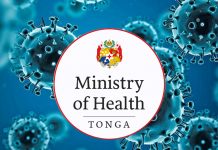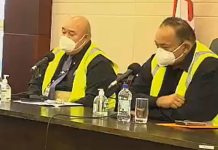By Erika Edwards, https://www.nbcnews.com/
Federal health officials have confirmed that a case of coronavirus has been diagnosed in Seattle. The Centers for Disease Control and Prevention said they will begin screening passengers at two additional U.S. airports: Atlanta and Chicago O’Hare.
The outbreak has spread from the central Chinese city of Wuhan to cities including Beijing and Shanghai, the CDC said on Tuesday. Cases have also been reported outside China, including in South Korea, Thailand and Japan. At least six have died.
The patient in the U.S. is a male in his 30s and is currently in good condition, the CDC said. He arrived in the U.S. around Jan. 15 after visiting Wuhan. Airport screenings did not begin until Jan. 17. The patient, who is a U.S. resident, did not have symptoms when he arrived, but had read about the virus online and when he started to develop symptoms, he immediately reached out to his health care provider.
How the US is preparing for coronavirus spreading through China
The case in the U.S. comes amid rising concern that the illness could be transmitted through so-called super-spreaders — highly infectious patients with the ability to sicken dozens at once.
Nearly all of the 300-plus cases have been reported in China, including at least 14 health care workers who have fallen ill with the respiratory virus, a coronavirus known as 2019-nCoV.
It’s unclear whether those workers were all infected in the same place, but if so, “it just smacks of a super-spreader event,” said Michael Osterholm, an international infectious disease expert at the University of Minnesota.
That’s when one patient inexplicably produces much higher levels of a virus in his or her lungs, giving the patient the ability to infect dozens of people at a time. Osterholm said super-spreader cases occurred during two well-known coronavirus outbreaks: the SARS and the MERS epidemics. The 2003 SARS outbreak reached more than two dozen countries, sickening 8,098 people. Nearly 800 died.
New virus prompts U.S. to screen passengers from Wuhan, China
“For those of us who dealt with SARS and MERS, it’s like déjà vu all over again,” Osterholm told NBC News. “When you see super-spreaders, you know you’ve got a problem.”
China’s National Health Commission confirmed 298 cases as of Tuesday evening. The majority have been reported in or near the city of Wuhan, and linked to a food market with live animals. Since the strain was first detected in December, the number of cases and their geographic spread has increased rapidly.
Severe cases have generally been limited to older adults with underlying health conditions. But increasingly, said Osterholm, younger, otherwise healthy adults are falling ill.What is a coronavirus?
Coronaviruses are a group of viruses can cause a range of symptoms including a runny nose, cough, sore throat and fever. Some are mild, while others are more likely to lead to pneumonia. They’re usually spread through direct contact with an infected person.
The coronavirus gets its name from the crown-like spikes on its surface, according to the Centers for Disease Control and Prevention. (Corona is Latin for crown.) Including the newly identified form of the virus, there are a total of seven coronaviruses that can infect humans, the CDC says.
There is no specific treatment for the new virus, and no vaccine to prevent it. The National Institutes of Health confirmed Tuesday they are in the “very preliminary stages” of research to develop a vaccine for the new virus, but declined to provide details.
The outbreak is coinciding with massive travel in and out of China in advance of the Lunar New Year on Jan. 25, and prompted the CDC last week to start screening passengers arriving from Wuhan at New York’s JFK airport, San Francisco International Airport and Los Angeles’ LAX. On Tuesday, the CDC announced that they would be screening passengers at two additional airpots: Alanta’s Hartsfield–Jackson Atlanta International Airport and Chicago O’Hare. All passengers whose flights originate in Wuhan will be re-routed to one of these five airpots.
On Wednesday, the World Health Organization will meet to discuss whether to declare the outbreak an “public health emergency of international concern.” Such a move would help guide countries on how they should respond, usually by offering financial and/or political support. It could also recommend against practices that could be detrimental to affected regions, such as travel and trade restrictions.
“One thing that we’ve seen in outbreaks in the past is countries try to put up travel bans or propose restrictive travel in an attempt to stop the spread of an outbreak,” said Alexandra Phelan, an adjunct professor at Georgetown Law who works on policy issues related to infectious diseases.
North Korea, for example, has reportedly closed its border to foreign tourists until the current coronavirus outbreak is under control.
But, Phelan explained, such policies are ineffective because people still cross borders. “When you put travel bans in place, people don’t go through the normal processes. You lose the opportunity to give people medical information, conduct appropriate screening or provide medical treatment,” Phelan told NBC News.







